#sparta
Text
Despite Sparta’s reputation for superior fighting, Spartan armies were as likely to lose battles as to win them, especially against peer opponents such as other Greek city-states. Sparta defeated Athens in the Peloponnesian War—but only by accepting Persian money to do it, reopening the door to Persian influence in the Aegean, which Greek victories at Plataea and Salamis nearly a century early had closed. Famous Spartan victories at Plataea and Mantinea were matched by consequential defeats at Pylos, Arginusae, and ultimately Leuctra. That last defeat at Leuctra, delivered by Thebes a mere 33 years after Sparta’s triumph over Athens, broke the back of Spartan power permanently, reducing Sparta to the status of a second-class power from which it never recovered.
Sparta was one of the largest Greek city-states in the classical period, yet it struggled to achieve meaningful political objectives; the result of Spartan arms abroad was mostly failure. Sparta was particularly poor at logistics; while Athens could maintain armies across the Eastern Mediterranean, Sparta repeatedly struggled to keep an army in the field even within Greece. Indeed, Sparta spent the entirety of the initial phase of the Peloponnesian War, the Archidamian War (431-421 B.C.), failing to solve the basic logistical problem of operating long term in Attica, less than 150 miles overland from Sparta and just a few days on foot from the nearest friendly major port and market, Corinth.
The Spartans were at best tactically and strategically uncreative. Tactically, Sparta employed the phalanx, a close-order shield and spear formation. But while elements of the hoplite phalanx are often presented in popular culture as uniquely Spartan, the formation and its equipment were common among the Greeks from at least the early fifth century, if not earlier. And beyond the phalanx, the Spartans were not innovators, slow to experiment with new tactics, combined arms, and naval operations. Instead, Spartan leaders consistently tried to solve their military problems with pitched hoplite battles. Spartan efforts to compel friendship by hoplite battle were particularly unsuccessful, as with the failed Spartan efforts to compel Corinth to rejoin the Spartan-led Peloponnesian League by force during the Corinthian War.
Sparta’s military mediocrity seems inexplicable given the city-state’s popular reputation as a highly militarized society, but modern scholarship has shown that this, too, is mostly a mirage. The agoge, Sparta’s rearing system for citizen boys, frequently represented in popular culture as akin to an intense military bootcamp, in fact included no arms training or military drills and was primarily designed to instill obedience and conformity rather than skill at arms or tactics. In order to instill that obedience, the older boys were encouraged to police the younger boys with violence, with the result that even in adulthood Spartan citizens were liable to settle disputes with their fists, a tendency that predictably made them poor diplomats.
But while Sparta’s military performance was merely mediocre, no better or worse than its Greek neighbors, Spartan politics makes it an exceptionally bad example for citizens or soldiers in a modern free society. Modern scholars continue to debate the degree to which ancient Sparta exercised a unique tyranny of the state over the lives of individual Spartan citizens. However, the Spartan citizenry represented only a tiny minority of people in Sparta, likely never more than 15 percent, including women of citizen status (who could not vote or hold office). Instead, the vast majority of people in Sparta, between 65 and 85 percent, were enslaved helots. (The remainder of the population was confined to Sparta’s bewildering array of noncitizen underclasses.) The figure is staggering, far higher than any other ancient Mediterranean state or, for instance, the antebellum American South, rightly termed a slave society with a third of its people enslaved.
3K notes
·
View notes
Text
Something I found out is that Hyacinthus, Helen, and Penelope are all Spartan royalty.
And they are all said to be absolutely stunning.
hmmm.....
#there's something in sparta alright#hyacinthus#helen of sparta#penelope#the iliad#the odyssey#sparta#tagamemnon#greek mythology#greek myths#greek myth
453 notes
·
View notes
Photo
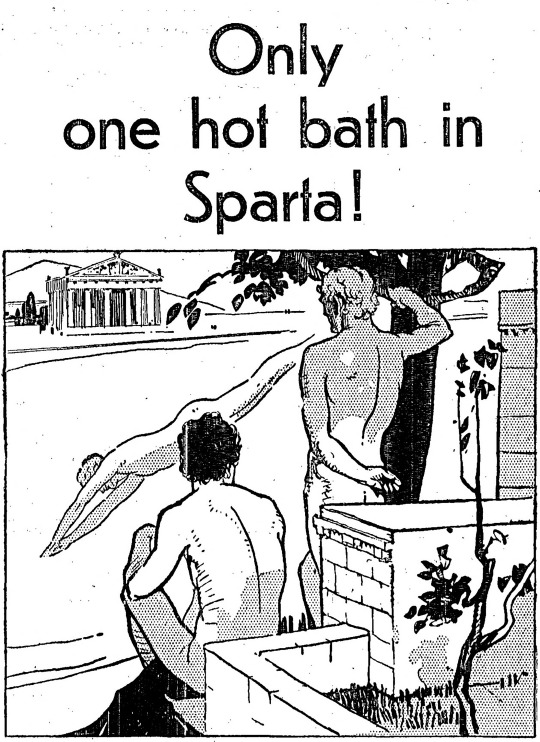
Source details and larger version.
Archival advertisements reveal the trends of their time: here's my collection of vintage ads.
191 notes
·
View notes
Text
Someone hear me out

(It's ever funnier when you know warriors from sparta were also often poets too)
#greek mythology#greek gods#greek myths#apollo#apollo x hyacinthus#apollo and hyacinthus#hyacinthus#hyacinthus x apollo#greek myth#Sparta#Hyacinthus prince of sparta my beloved#greek pantheon
179 notes
·
View notes
Text
Im REALLY loving how they made Odin a “manipulative mob boss” type, someone who rules with psychological presence, charisma rather than raw power and might.
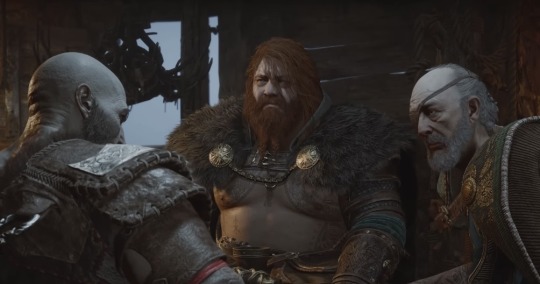
A breath of fresh air compared to like… 99% “big fellas” in the series (2/3 of this group included) plus perfect sense Atreus would “vibe more” with him, since he’s never really been one for muscle talk.
#god of war#kratos#atreus#odin#thor#gow ragnorak#god of war 2018#asgard#midgard#thor odinson#santa monica studio#loki#loki laufeyson#god of war 4#ragnarok#sparta#fenrir#god of war spoilers#mafia#odin allfather#odin's ravens#zeus#baldur#magni#modi
2K notes
·
View notes
Text
ok I’m so sorry but personifying the theory that Apollo replaced Hyacinthus’ wife in mythos once he gained worship in Amyclae is SO FUNNY.
Hyacinthus literally be like *gesturing to this strange, war-torn, intense & VERY VERY TALL man that suddenly appeared* “this is Apollo he ate my wife and is now my wife I love him so much <33” AND HE’S LIKE “yes I am his wife of course I’ve been his wife the whole time why would you say that I love my uhhhh husband so much” (covered in blood. From The War)
128 notes
·
View notes
Text
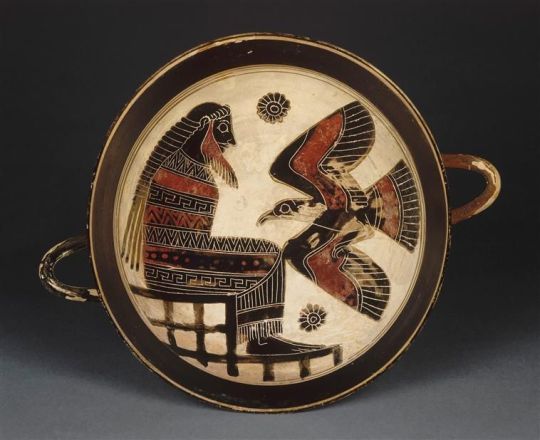
Lakonian kylix featuring Prometheos and his friend, the Eagle.
The hair - facial and head - is so quintessentially Spartan, it’s not funny. And he has his braids in a braid, right? That’s what’s going on back there? Like a super-braid.
Saw this called a Spartan king somewhere along the way. Think that might be a bit of a push, but I do like the idea that some perioikic craftsman was like - ‘Y’know, if I could depict anyone having their liver pecked out on the daily, you know who I’d choose…’
Anyway - This is 7th Century Lakonianware (from before the great cultural shift).
#ancient sparta#ancient greece#lakedaimon#7th Century BCE#spartan hairstyles#sparta#ancient history#greek history#spartan history#ancient greek history#greek mythology#prometheus
292 notes
·
View notes
Text

Spring Brook trail, Sparta, New Jersey, ca. 1932 - by Adolf Fassbender (1884 - 1980), German/American
120 notes
·
View notes
Photo

THIS
IS
SPARTA
80 notes
·
View notes
Text
So, someone told me about New Rome awhile ago, and I just saw a post talking about what would happen if the Greeks also built a city. And they were talking about it being called New Athens (or New Sparta).
And like.... wouldn't New Delphi make more sense????? The Oracle of Delphi lives at camp. The strawberries company is called Delphi something. Apollo literally has his own book series.
If Rick does make the Greeks create a city like New Rome (which I think he should), then I think it should be called New Delphi.
#pjo#percy jackon and the olympians#hoo#heroes of olympus#toa#trials of apollo#new rome#camp halfblood#athens#sparta#delphi#romans#greeks#apollo
91 notes
·
View notes
Text
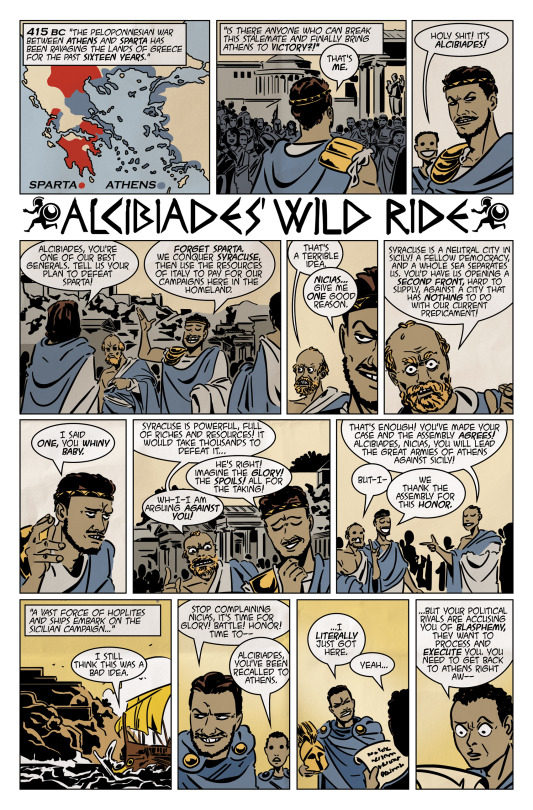
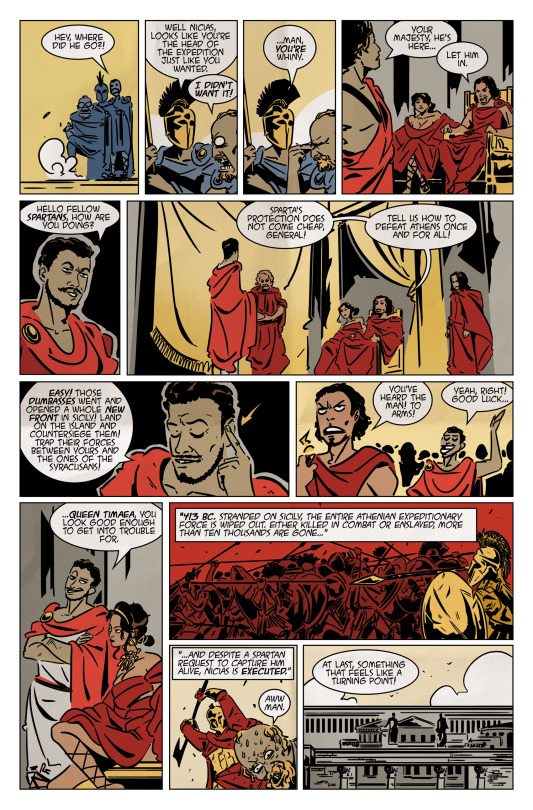



New comic out!!!
It's the tale of ALCIBIADES that lovable scamp.
260 notes
·
View notes
Text
i just love that Hyacinthus is a Spartan.
i love reminding people that he is A SPARTAN.
he is UNHINGED and people NEED TO KNOW IT.
#he's not the pretty flower boy u all think he is :)#he can and will fuck you up and not in the way he does apollo#hyacinthus#hyapollo#apollocinthus#toa hyacinthus#pjo hyacinthus#apollo x hyacinthus#hyacinth#apollo#the trials of apollo#greek myths#greek myth#greek mythology#sparta#ancient greece
640 notes
·
View notes
Note
Was Sparta actually good at war, or are they among the most overhyped cultures in history?
I'm with the Overly Sarcastic Productions team on that the Spartans are massively over-hyped. It's characteristic of the Spartans that they managed to manufacture an enduring mythology of nationalist triumph from a battle they lost because they couldn't be bothered to guard their flanks with even the lightest of screening forces.
However, if you look at their historical track record, the Spartans simply weren't very successful. They lost to the Persians, were basically losing the Peloponnesian War until the Syracusians and Persians bailed them out, they promptly got trounced by the Sacred Band of Thebes, their slave colonies defeated them, they were defeated by the Romans, and on and on.
If you want a good antitode to Frank Miller's fascistic propaganda, I highly recommend Kieron Gillen's Three for a much more accurate portrait of the Spartans.
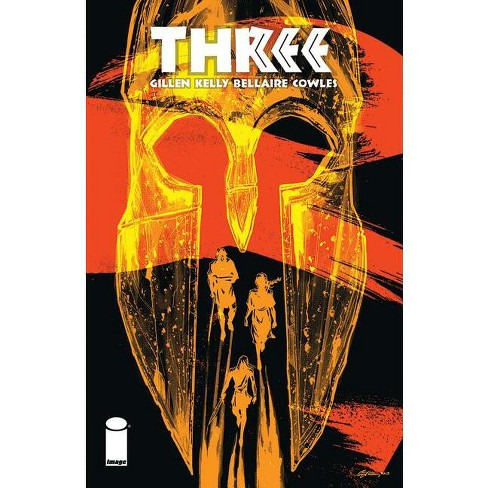
334 notes
·
View notes
Text
*reads yet another Trojan war retelling from the perspective of Clytemnestra and/or her family members knowing full well I’m going to cry my eyes out*
#fantasy books#greek mythology#clytemnestra#the iliad#incorrect iliad#electra#elektra#timandra#iphigenia#Iphigenia my darling#greek myths#mythology#myths#ancient greek#Sparta#helen of troy#trojan war#trojan horse
106 notes
·
View notes
Photo

Norgram / Sparta / Copenhagen Marathon / Poster / 2023
56 notes
·
View notes
Text
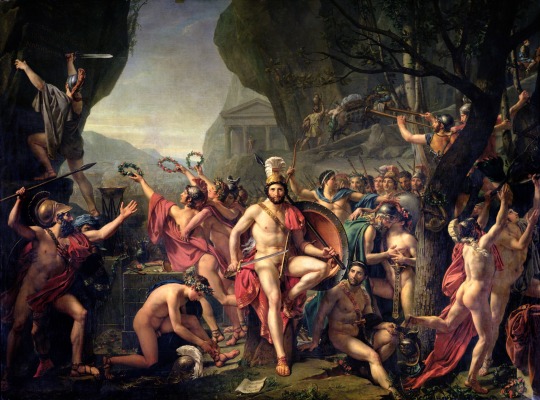
Leonidas at Thermopylae by Jacques-Louis David
#leonidas#heroic#art#jacques louis david#king leonidas#history#spartans#300 spartans#sparta#ancient greece#battle of thermopylae#thermopylae pass#europe#european#last stand#leonidas i#ancient greek#persian#invasion
615 notes
·
View notes